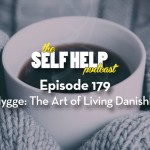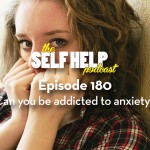Anxiety Addiction Disorder (AAD)
This weeks podcast is at the request of a listener who reports ‘drowning in his partner’s anxiety’. He asked if his partner could be addicted to anxiety and if so is there a cure. The answer to the first question is ‘yes’ and to the second ‘maybe’. Like most things, anxiety is in the eye of the beholder. So you may experience my behaviour as anxious but I do not. For me it may be normal, business as usual. But yes, anxiety is sometimes seen as an addiction.
Anxiety Addiction disorder, or AAD, does not refer to the anxiety that would be caused by being addicted to a substance, such as cocaine or alcohol. In AAD anxiety is the addiction, the anxiety has become the equivalent of a drug. The sufferer of AAD has become an anxiety junkie and responds to the emotional problems in their life by turning to their addiction anxiety. In the case of AAD, the addiction is often played out as anxiety or panic. However, like all junkies the sufferer of AAD will avoid personal responsibility for their addiction by blaming others. “I only, drink, take this drugs, punch, people, or become generally offensive because these awful things happened to me when I was a child or because you did that to me, or, you looked at me the wrong way ….” and so on
I should start this by saying that generally anxiety is a good thing. It has kept us safe throughout evolution. The anxiety generated through the awareness of danger is a good thing. Anxiety disorder is a different beast. It allows us to create anxiety and panic responses to imagined, fantasised or even when we are in completely safe situations. When we become addicted to anxiety we can appear to be stupid because there is no logic or cognition to moderate the illogicality of our anxiety.
The stupidity of anxiety
I use the word stupid not in a demeaning way but to indicate the lack of cognitive thinking. Anxiety is an emotion and we know from neuropsychology that we are unable to both think and feel clearly at the same time. This means that when we are in the grip of panic or anxiety we lose all sense and logic. When in full emotion such as in anger, fear or love, we become stupid and cannot make a reasoned response. If you have ever tried to rationalise with a drunk you will be aware that you just can’t do it. The part of their brain that you could reason with has been switched off by the alcohol. The same is true of anxiety. It is impossible to have a reasoned conversation with an AAD sufferer when they are in full flow.
As with all addicts the anxiously addicted person does not see that their behaviour is illogical. They will see the rightness of becoming forever more upset and obsessed with the object of their anxiety. They will build the anxiety by ruminating on the issue that they have decided to be anxious, or panic, about. In the end it will grow to become overwhelming and may become debilitating.
The family issue
When working with the family of an addict we acknowledge that if someone in the family has an addiction such as alcohol then the whole family has an alcohol problem. The same is true whatever the addiction. So, if someone in the family has an anxiety problem then the whole family has an anxiety problem. In AA, alcoholic anonymous there is also ‘al-anon’ that fund groups dealing with the needs of the family of the alcoholic. The same is true in NA, narcotics anonymous. As yet we do not classify anxiety disorders in the same way as substance abuse disorders yet the problems in the family of someone suffering anxiety disorder may be just as great as with any other addiction.
Anxiety as an addiction is just a habit
The Mind-Brain Habit Machine
We are all the sum total of all the habits that we have developed and practised since the moment of our birth. It may seem strange to describe us as a collection of habits, but that is exactly what we are. The concept of “this is just the way that I am” is always faulty. The correct thinking is “this is the way I have learned to be”. The powerful word there is ‘learned’. Because the Mind-Brain is a ‘learning’ machine that, if I choose, I can use the same process to learn and become whatever I want to be. It is just creating a new habit.
You can become whatever you choose to be!
The clinical issues
Because the emotional responses that we make are often based in our brain chemistry, that is they are concerned with the hormones and endorphins that make up our mind/brain chemistry. The only exception to the ‘learned’ rule is when we use the word ‘Clinical’. When someone suffers clinical depression or clinical anxiety we are normally saying that their body system in incapable of, or has problems, producing the required chemistry to enable their system to run and respond normally. The most obvious case would be diabetes which occurs when the chemical, ‘insulin’ is deficient in the pancreas. Some diabetes is caused by diet and life style. This requires a change in thinking, life style and learning new habits to overcome the problem. Someone who is ‘clinically diabetic’ can not learn to be different they will need to take insulin for life. Some people who suffer ‘clinical anxiety’ will also probably need to take medication for the rest of their lives in some form or another. In both cases the issues can be moderated through lifestyle changes that may improve the condition though the underlying need for medication will never go away.
Anxiety and hormonal imbalance
At different times in life, or in the month, during menopause or menstruation there may be an imbalance of hormones that can create feelings of anxiety. This imbalance can be helped with various preparations and HRT. These hormonal imbalances are clinical and may not be resolved through learning though the practice of mindfulness will minimise the effects. Hormonal changes and imbalances are not limited to females, men also suffer life time hormonal changes.
The chemical addiction of being in a body
When we understand that we are all addicts we can begin to understand ourselves. The chemistry that is you, which is the balance of the hormones and endorphins that run your system, are unique to you. No one else has your hormones. No two people are chemically the same, not even identical twins. Life, experience and learning and, most importantly, our responses to events, create the internal chemistry that becomes our normal, for us, it is who we are.
You addiction is your chemical normal that makes you feel right
I am forever saying this:
“If when you are a child you observe your mother running around panicking about spiders you will build the structures in your brain, in your amygdala, that will then create the appropriate chemistry so that when you see a spider. You will then panic just like your mother did and in turn you may well pass this ability to panic about spiders onto your children”.
When you see someone with AAD you will often also see it in their parents and siblings. That is unless one of them has completed the psychotherapy that allows them to move beyond their disorder.
The anxiously addicted family
So back to the addiction of anxiety. Remember that if someone in the family has an anxiety disorder then the whole family has an anxiety disorder. What that means is the person’s addiction will effect all that happens in the entire family.
It will dictate what happens in the house, how things are ordered or in what sequence events take place. It will create planned behaviours, such as what happens when we leave the house and the rituals that need to be played out to ensure a safe and secure departure. It will effect everywhere we go and all that we do.
With any addict, their addiction always comes first
Like any addict the sufferer will always see their addiction as the most important thing in their life. Everyone and everyone else’s needs come second to the addiction. However, like any other addict, if for some reason they are denied their ‘hit’ of catastrophized emotional expression it will burst out later in a binge. Usually the family learn this and all the family members adapt their behaviour to cope with this. In all addictions it can be very easy for the family members to end up supporting the addiction rather than the person. It can be easier to supply an alcoholic with booze to keep them quiet and avoid the problems that come with their withdrawal. It can be easier to go with the flow of the AAD sufferer than confront the behaviour.
The problems of confrontation
In most cases it does not matter what you say, you will always be wrong. Your helpful words my be seen as patronising and your actions as inappropriate. Your attempts to get it right maybe seen as interfering and unless you agree with the AAD sufferer you will be experienced as not listening or as insensitive. In many cases the option is to keep your mouth shut, for most people, is difficult. Confrontation should really be communication. Often confrontation has the reverse effect (Coue’s Law of Revered Effort) and can make the addict dip further into their addiction, the alcoholic drinks more, the cocaine addict snorts more and the anxiety suffer becomes more anxious and so on.
The problem is that communication requires that two people can both hear each other and inevitably the addicted person is so embedded in the importance and validity of their own behaviour, which they now see their behaviour as normal The confronter is then seen as insensitive and horrible for not tolerating their addictive behaviour. In the warped perception of addiction the person with anxiety sees anything other than compliance with their needs as insensitive. Generally they have ceased to see any one else’s point of view other than their own.
Overcoming AAD in the family
In a world where an estimated 60% of people visiting the family doctor have anxiety as a primary or major cause of their symptoms we have an epidemic anxiety and a plethora of emotional medications on offer. I am not sure if this means that 60% of families have an anxiety disorder. Sadly, medication is seen as the number one defence against anxiety. The alternative to medication is mindfulness and/or psychotherapy. However, all addicts will only address their addiction when ‘they’ see it as a problem. In a world where anxiety is seen as an acceptable norm, that can just be tolerated by the family, or controlled with a little medication, we are probably committing future generations to ever higher levels of anxiety.
Like any addiction anxiety will only go away when the underlying causes of the habit are understood and dealt with. Like any other addiction habit it needs to be replaced with non addicted habits that serve us well. Or maybe we just need to get addicted to habits that are benign.
If you have anxiety that gets out of hand you need to first understand if it is clinical, reactive or a habit. Then you need to decide whether it is your choice to maintain it or overcome it.
Take care and be happy – it is the key to life.
Sean x



Trackbacks & Pingbacks
[…] Sean wrote a blog post on this subject. Have a read… […]
Leave a Reply
Want to join the discussion?Feel free to contribute!